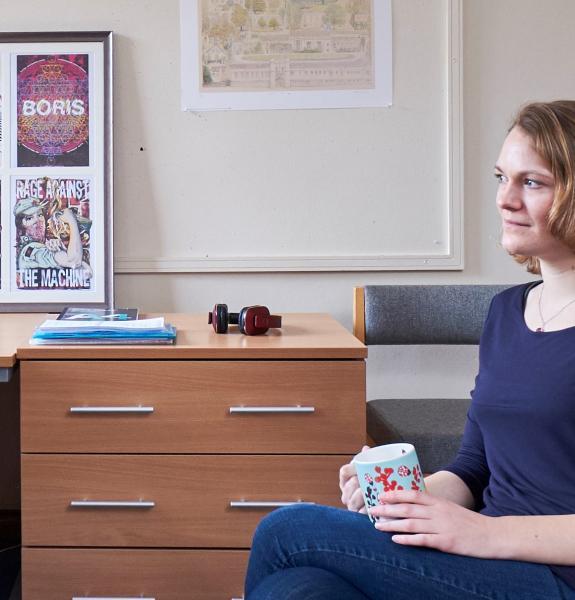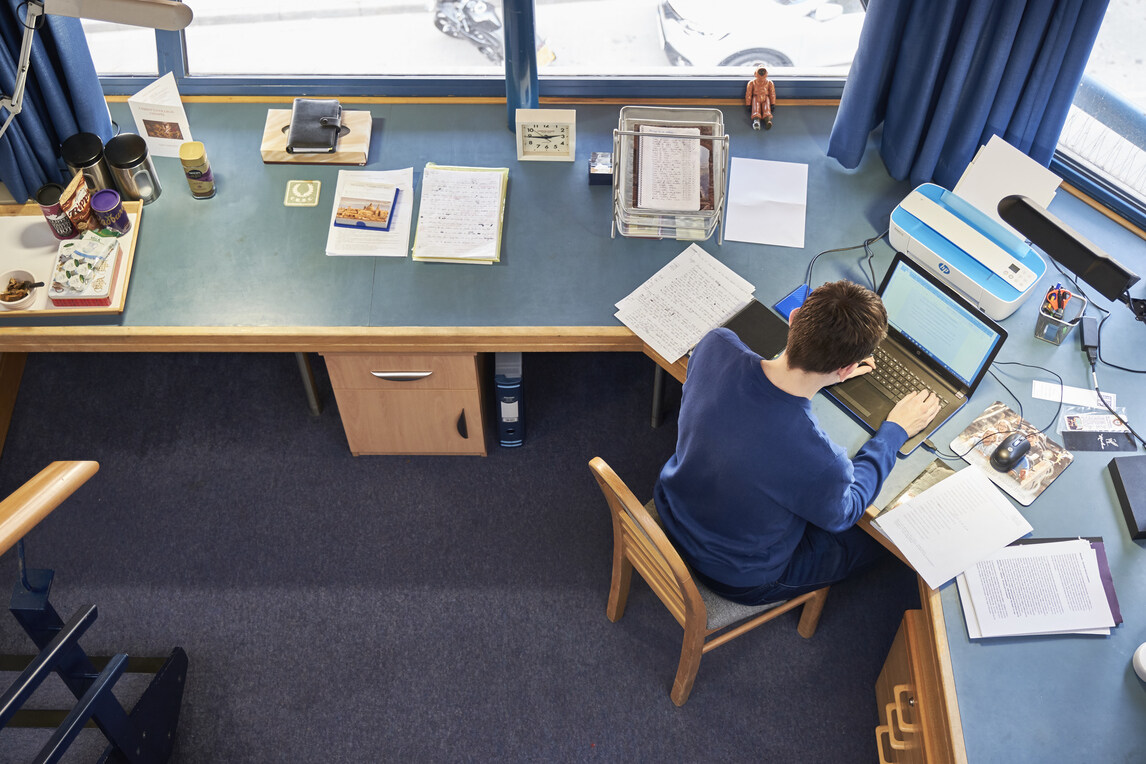
Many prominent historians have flourished here, including J. H. Plumb (33rd Master of Christ’s), David Cannadine, Linda Colley, Quentin Skinner and Simon Schama. The College’s track record in Modern Languages is equally distinguished, indeed the Modern Humanities Research Association, which today plays a critical role in promoting the study of European languages and literature, internationally, was founded in a room in the College shortly after World War One. Our 36th master was Malcolm Bowie, the renowned specialist in modern French literature (Mallarmé and Proust in particular) who is commemorated by the student-run Malcolm Bowie Society for languages.
The College has a lively welcoming community which arranges parties and dinners including student-run inititiatives such as the MML Dinner. As well as the languages society, undergraduate historians from Christ’s can get together at the many events hosted by the Seeley Society. Our Old Library has a fascinating collection of early printed books and manuscripts to consult, and our first-years often take trips to explore museums and historical sites outside Cambridge.
The Christ's Awards include generous financial support with dissertation research or language-learning programmes at Cambridge University Language Centre and abroad.
The joint degree in History and Modern Languages combines the best of both subjects. It offers the opportunity to develop near native-speaker skills in a foreign language while studying a range of papers relating to the culture and history of the relevant language area; options in some languages also include film and contemporary politics. Students will also develop analytical skills in History through studying topics in British, European, American and World history, as well as the history of political thought. There will be opportunities to work with historical sources in foreign languages.
The languages available for study are:
> French (post A Level)
> German (from scratch or post-A Level)
> Spanish (from scratch or post-A Level)
> Italian (from scratch or post-A Level)
> Portuguese (from scratch)
> Russian (from scratch or post-A Level)
The History and Modern Languages degree (or ‘tripos’) is a four-year degree. You spend third year studying or working abroad, immersed in the language, culture, history and politics of a foreign country. Please visit the University website for full details of the History and Modern Languages course content and structure, including the course film. You will also find information on the Faculty of Modern and Medieval Languages and Linguistics page for prospective applicants. If you have further questions about course content, please contact facultyoffice@mmll.cam.ac.uk.
You have lectures at the Faculty of History and Faculty of Modern Languages, plus small-group teaching sessions known as ‘supervisions’ here in College. These are organised by your Director of Studies to provide personalised feedback on your work. And to support your studies, you have access to Cambridge’s world-class libraries and their extensive collections of foreign language films.
The Christ’s Director of Studies on this course is Dr Ksenia Zanon.
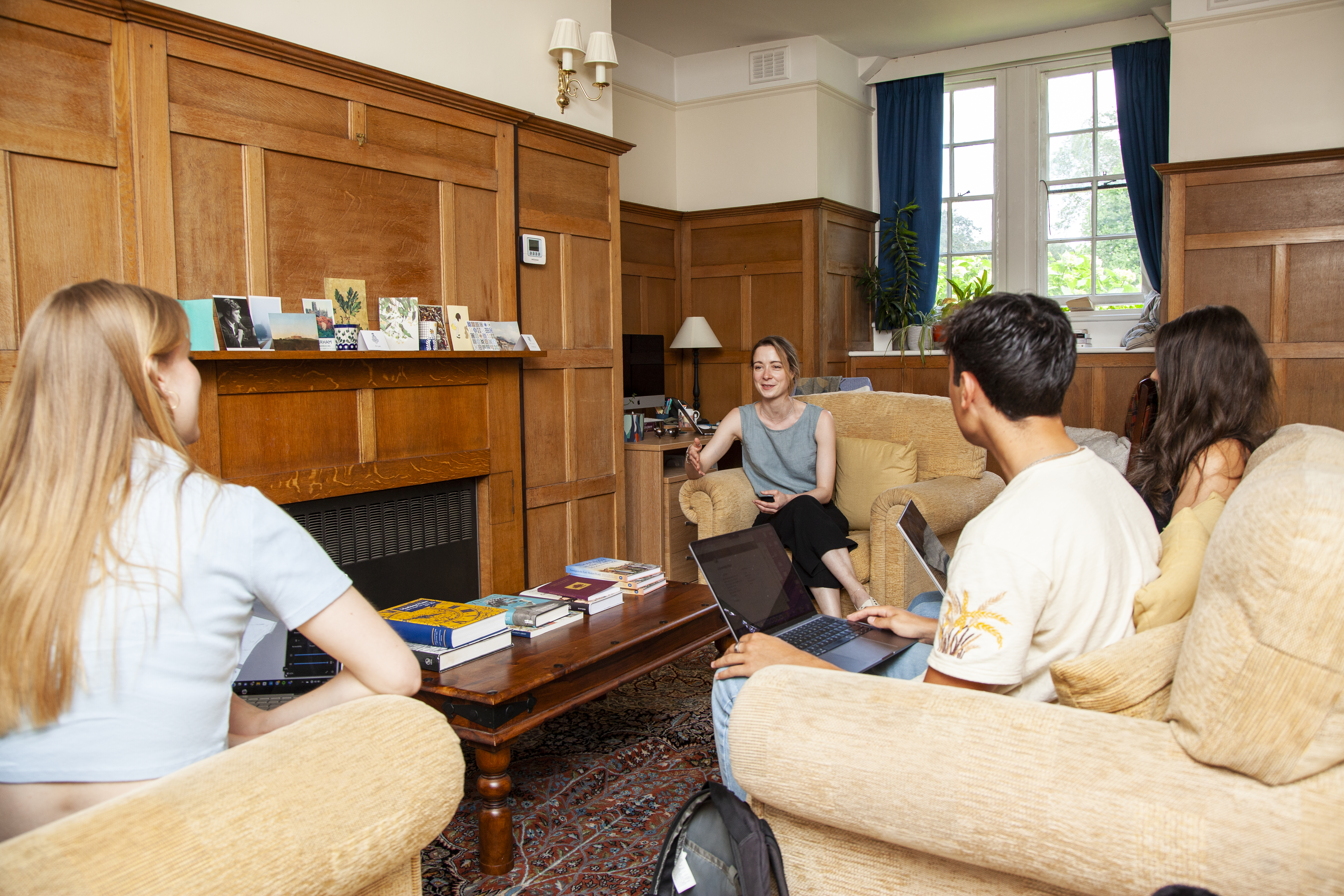
Read about the experiences of Eebbaa and Nik who studied History and Modern Languages here at Christ's. You may also be interested to read the profiles by Ossie and Laura, both of whom applied for History and Modern Languages but ended up on the History course.
You may also find it helpful to read profiles by students studying History (Alice, Max, Isobel, James and Sathya) and Modern and Medieval Languages (Sophie, Yi-Ling, Juliette and Ethan).
If you’d like to hear from other Christ's students, please watch the Christ's student Q&A film, and visit our Student Profiles page.
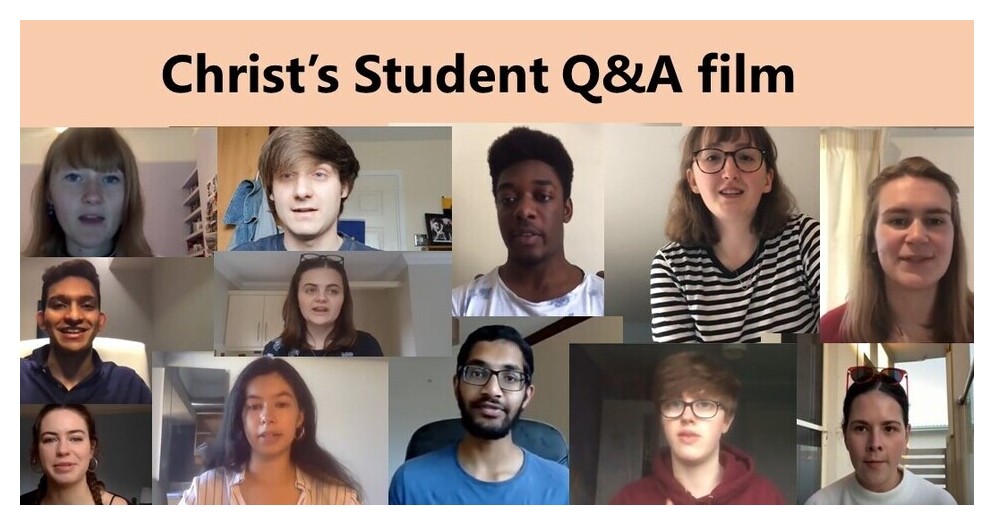
I like the collegiate system as I feel it is, especially at Christ’s, very good for a community feel – it brings together lots of different people of different subjects and allows for a strong social base which is completely separate from the faculty and work. I also know that I have many places to turn to if I need support here, from friends, to welfare officers, my tutor, the Chaplain, and the College nurse.
How to apply
Visit How to Apply for full details and a timeline of the application process. We welcome applicants from all backgrounds and school types, all over the world. If you're applying from outside the UK, please read our international students section.
If you are selected for interview, you will also take a language assessment remotely on a set date in late November. You do not need to register for this. Further information below.
All applicants should be studying at A-Level, IB Higher Level, Scottish Advanced Higher or equivalent in the language for which they are applying (unless you will be studying a language from scratch), and A-Level, IB Higher Level or equivalent in History.
Applicants proposing to study a language from scratch must offer a modern or classical language at GCSE or equivalent.
We encourage students to attend one of our regular Subject Matters webinars for help with choosing Post-16 subjects for competitive university applications. This webinar is pitched for students aged 14-16 though it is also possible to attend when you have started sixth form.
After your application is received, you will be asked to upload two essays that you feel accurately reflect your abilities and interests. This should be work which has been prepared during the normal course of your studies and has already been marked by a teacher.
One piece of work should be relevant to History, the other should be in the language for which you have applied (except for ab initio languages, in which case you should upload an essay written in English).
We recommend that you keep copies of the work you send for your own reference as it may be discussed at interview. Full written work guidelines will be provided as part of the current applicants section on this website (published by 20 September each year).
If we invite you for interviews, these usually take place in early December. At Christ's we do all of our interviews online on Microsoft Teams. You can have your interviews either at home (most applicants do this) or at school (if easier).
Those selected for interviews are normally interviewed for 35-50 minutes in total. At Christ’s, we usually split the time into two interviews with academics in History and Modern Languages, with one History interview and one Modern Language interview. Applicants should be prepared to discuss their relevant interests and potential directions they may wish to follow.
Shortly before your Modern Language interview, you will be sent a short text to read, for discussion during the following interview. An interview for a language you have already studied will include a text in that language (and perhaps some questions to think about as you read it); interviewers for a language you wish to learn from scratch will instead set a text in English, but will be seeking to gauge the level of your commitment to your chosen language, as well as general linguistic and analytical aptitude.
Further, more general information about interviews (including two useful films) is available in the Cambridge interviews section, and it's worth also having a look at supervisions (short film here), as interviews are similar to what you do every week as a Cambridge student. We also recommend this film in which current Cambridge History students discuss their interview experiences. Remember that your interviews may cover different things to the students speaking.
Assessment details are confirmed by July each year, but note that applicants for History and Modern Languages who are selected for interview are normally asked to take an Admissions Assessment towards the end of November (Wednesday 19 November 2025 for this year's applicants). We arrange your assessment automatically if you are selected for interview, so you don’t need to register. You complete the assessment remotely (you can complete it at home or at school) and upload your work - you will not need to travel for it. Details of how the assessment will work are given to students selected for interview by email.
Information about the format and content of the Admissions Assessment is available on the College assessments page by July each year. Note that there are two versions of the assessment - History and Modern Languages students who have studied their language at A level or equivalent take the same assessment as MML applicants, whereas those applying to study a language from scratch take the History and Modern Languages ab initio Admissions Assessment. There are sometimes changes to assessments from year to year - any changes are confirmed by the July before you apply.
Further information about the format and content of the assessments is available in the Undergraduate History & Modern Languages course information. See the entry requirements tab.
We define the terms of each offer individually, but our typical conditional offer for History and Modern Languages is
> A*AA at A-Level including History (and a Modern Language unless you are applying for an ab initio language)
> 42 points overall in the IB with 7,7,6 in Higher Level subjects including History (and a Modern Language unless you are applying for an ab initio language).
> A1,A2,A2 in three Scottish Advanced Highers including History (and a Modern Language unless you are applying for an ab initio language).
We may tie the A* to a relevant subject (depending on what combination of subjects you are taking) or ask you to complete some additional self-study if you have not taken a close equivalent of A-level History.
You need to be academically ambitious: the majority of Christ's students arrive with higher grades than are required.
You can look up other qualifications in the offer levels for other exam systems and international entry requirements, and if you are applying from outside the UK please read the Christ's international students section for further information and check the country pages.
If you will have finished school when you apply, please also read about post-qualification applications, taking a gap year, and, if relevant, applying from a university.
| Sample lectures | From a languages open day, including one for History & ML (scroll down). |
| History Virtual Classroom | From the Cambridge Faculty of History, and including History reading advice |
| History reading advice | from the Faculty of History |
| HistoryExtra | BBC Magazine |
| Further History resources | History resources on the Christ's History page |
| Developing your interest in languages | Advice on the Christ's Modern and Medieval Languages page |
| Online newspapers | A comprehensive directory of European newspapers |
| Online lectures | The Novel as Political History - Stendhal's Le rouge et le noir German historical memory and national identity |
| History essay competitions E.g. Robson; Julia Wood | Entering an essay competition is a good way to find out more about a topic and get some extra practice in writing a convincing and well-structured essay. |
| HE+ History HE+ Languages | Websites for secondary school students who want to explore History / languages |
| CamGuides | Introducing the academic and information skills that you will need during your studies, as well as how and where you work. |
Interviews are supposed to simulate supervisions that you would have if you get in, so interviewers want to know that you will enjoy and benefit from this style of interacting and learning. Be dynamic, interested and think carefully about what you say – but don’t overthink!
Events (online / in person)
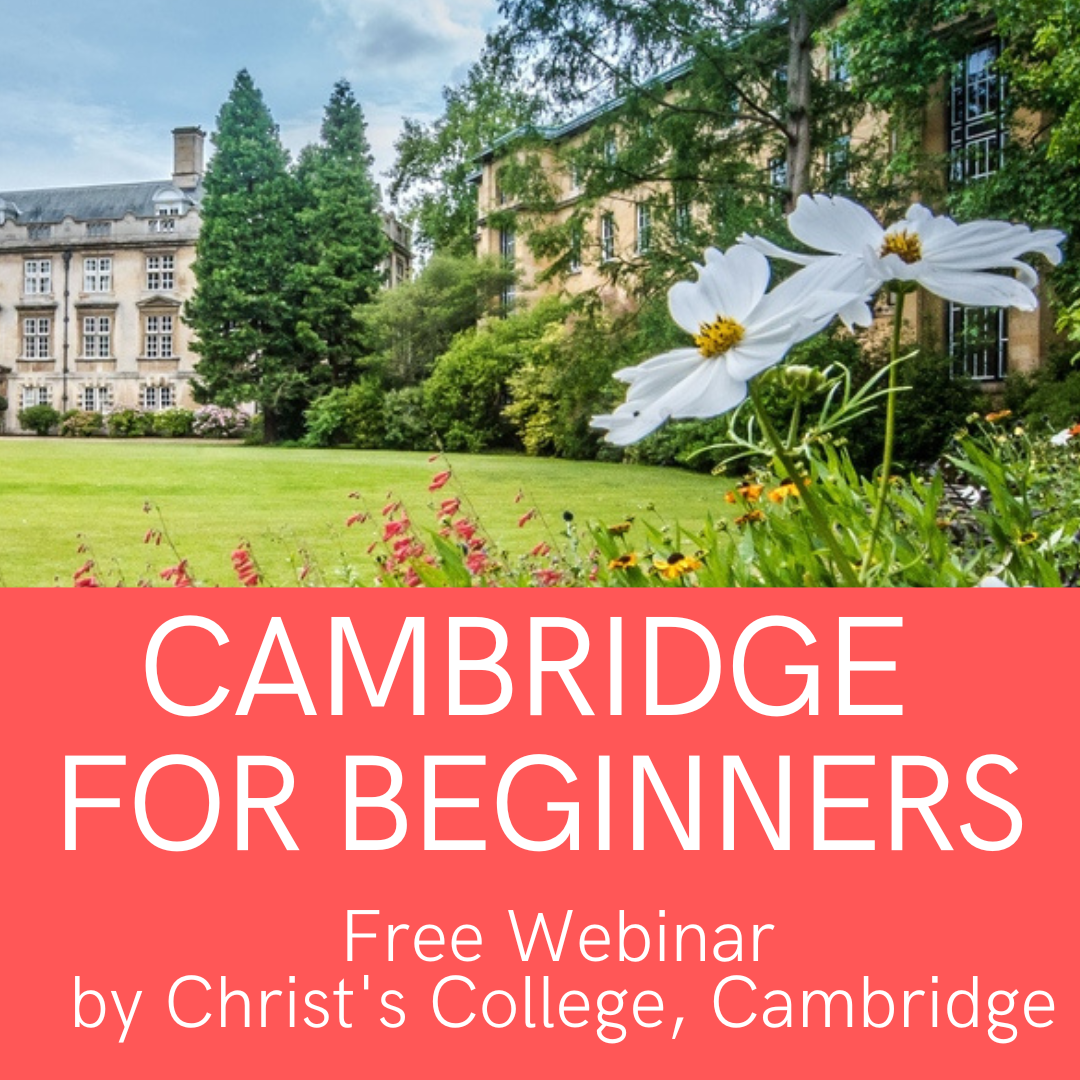
Our open days and events page advertises regular online opportunities as well as events you can attend in Cambridge. Between February and August we run regular webinars:
> Subject Matters: The importance of post-16 subject choices
> Cambridge for Beginners
> Understanding Student Finance
> Personal Statements and preparing for an application
> Webinars for applicants outside the UK
For History and Modern Languages, see in particular
> College Open Days
> Languages Open Day in March (feel free to Visit Christ's the same day)
> World of Words residential (eligibility criteria apply)
> Christ's Online Subject Meetings in May
> Cambridge SU Shadowing Scheme (eligibility criteria apply)
> Sutton Trust Summer School (eligibility criteria apply)
For a fuller picture of what the course involves, take a look at Undergraduate History and Modern Languages admissions on the University website and visit the Faculty course information too.
If you have any other queries at all, please contact us at admissions@christs.cam.ac.uk and we’ll be happy to advise.


